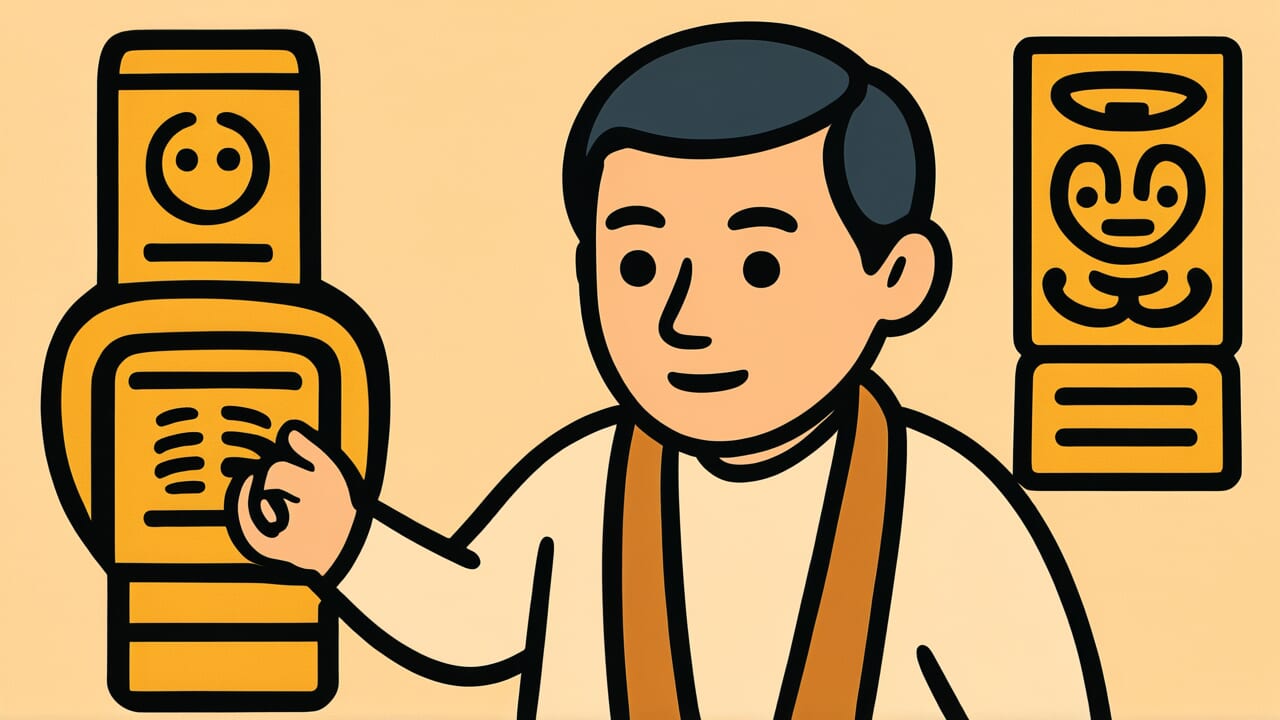How to Read “The Yue people are content in Yue, and the Chu people are content in Chu”
Etsujin wa etsu ni yasunji, sojin wa so ni yasunzu
Meaning of “The Yue people are content in Yue, and the Chu people are content in Chu”
This proverb means that people feel satisfied and secure in the land and environment where they were born and raised.
Just as people from Yue find comfort in their environment and people from Chu find comfort in theirs, humans feel most at ease in familiar places and customs.
This proverb helps us understand other people’s values and ways of life. It reminds us that even if an environment or custom seems strange to us, it feels natural and comfortable to those who grew up in it.
People also use this saying to explain why someone finds it hard to leave their hometown.
In today’s globalized world where diverse values meet, the essence of this proverb remains unchanged. The fact that our upbringing shapes our feelings and values is still important for mutual understanding.
Origin and Etymology
This proverb comes from ancient Chinese classics. Yue and Chu were kingdoms that existed during China’s Spring and Autumn period and Warring States period.
Yue was located around present-day Zhejiang Province, while Chu was in the middle Yangtze River region. The two kingdoms had different geographical and cultural characteristics.
This proverb emerged from the strong regional identities in ancient China. Transportation was limited back then, and people typically spent their entire lives in their birthplace.
People from Yue grew familiar with Yue’s climate, land, food, and language. People from Chu became accustomed to Chu’s environment.
What’s interesting is that this proverb doesn’t just describe regional differences. It expresses a fundamental aspect of human nature.
It shows a universal truth: no matter what the environment, people who are born and raised there accept it as natural and feel secure in it.
After reaching Japan, this teaching resonated with many people. Japan also had unique cultures and customs in each region, and people held deep attachment to their hometowns.
This proverb has been passed down as wisdom for understanding and respecting people raised in different environments.
Usage Examples
- People say they don’t understand the appeal of rural life, but as “The Yue people are content in Yue, and the Chu people are content in Chu” says, my hometown is better than the city for me
- She wants to live near her family home, which makes sense because “The Yue people are content in Yue, and the Chu people are content in Chu”—the environment where you grew up feels most comfortable
Universal Wisdom
The universal wisdom in this proverb addresses both human adaptability and the deep influence environment has on personality formation.
From the moment we’re born, we continuously absorb our surroundings. Climate, food, language, and ways of relating to others all unconsciously become part of who we are.
What’s interesting is that this proverb doesn’t use a simple word like “get used to.” Instead, it uses “are content,” which means to feel truly secure and satisfied.
People don’t just accept their environment—they actively find value in it and develop attachment to it.
This makes sense as a human survival strategy. Without viewing your environment positively, you cannot achieve peace of mind.
This wisdom has been passed down because it connects to the modern value of respecting diversity. To understand someone raised in a different environment, you need to imagine their background.
This proverb teaches the importance of not rushing to judgment and considering others’ perspectives. It contains a deep understanding that people are doing their best to live within their own environments.
When AI Hears This
The phenomenon of people staying in familiar environments is remarkably similar to “convergence to a local energy minimum” in physics.
Just as water collects in low places, human behavioral systems optimize to minimize energy consumption at their current location.
People from Yue settle in Yue because they’re already adapted to that environment, requiring minimal cognitive energy for daily decisions and actions.
Brain research shows that adapting to new environments activates the prefrontal cortex intensely, requiring two to three times the normal glucose consumption.
Changing environments literally has an “energy cost”—it’s a physical phenomenon. Cultural elements like language, customs, and relationships function as “optimized programs” for living in that place.
Rewriting this program requires temporarily raising the entire system to an unstable, high-energy state.
Interestingly, in thermodynamics, a system can transition to a different stable state if energy is injected from outside.
Humans are similar—with “energy injection” in the form of strong motivation or necessity, adaptation to new environments becomes possible.
Without external stimulation, people remain in their current state, just as objects stay at the bottom of valleys. This isn’t laziness—it’s a natural state following the universe’s basic principles.
Lessons for Today
This proverb teaches us to respect people who make different choices from our own.
People living in cities, people living in the countryside, people going abroad, people staying local—each choice has its own reasons and value.
Judging others’ lives by your own standards might actually show narrow-mindedness.
At the same time, this proverb gives us courage to affirm our own choices. Even if others choose different paths, if you have an environment that feels comfortable and values you want to protect, you can take pride in maintaining them.
Being different from others doesn’t mean being wrong.
In modern society, we see glamorous lifestyles worldwide through social media, which can make us dissatisfied with our own environment.
But true happiness doesn’t come from comparing yourself to others. It comes from having a place where you feel secure.
The Yue people are content in Yue, and the Chu people are content in Chu. Cherish your own “place of contentment” while respecting others’ “places of contentment.”
This kind of balance is necessary in our modern world where diverse values coexist.



Comments